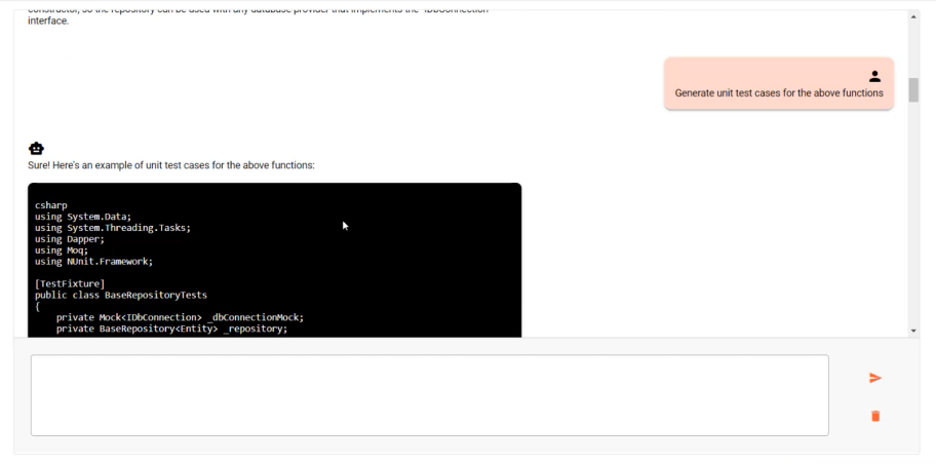From ChatGPT to complex tools by big names like Google, Microsoft, and IBM, artificial intelligence (AI) is quickly becoming an important part of innovation and efficiency in many industries, including real estate. AI tools exist to help across all business practices, but in particular it is making big impacts in the world of development.
Engineers and businesses use AI development tools such as generative AI platforms to add a competitive edge and stay ahead of industry trends. Generative AI has become especially beneficial during the software development life cycle by enhancing the development and quality assurance (QA) stages.
AI tools are shown to provide undeniable improvements in productivity. According to a recent study by Microsoft in collaboration with GitHub, they found that AI development tools like pair programmers can increase the speed of task completion by 55.8% based on the treatment group they used.
That’s why Xome has chosen to use various AI development tools to help accelerate the development of our products and deliver the best digital solutions to our customers. Here are a few of the ways that AI is making a difference in how we work.
AI tools throughout the software development life cycle
Xome teams now utilize tools like GitHub Copilot and a generative pre-trained transformer (GPT) to help with different phases of the software development lifecycle when working on Xome’s products.
AI development tools vary in usage and functionality, catering to different stages of the software development lifecycle. During the development phase, AI development tools offer pre-built models, libraries, and intelligent code completion, significantly accelerating development while making sure that best practices and code quality are met.
During QA, AI tools automate functional testing, detect defects, and enhance performance. They continue to play a crucial role in post-deployment during the monitoring and maintenance phase, enabling predictive maintenance, issue detection, and real-time performance improvements.
Using generative AI in development
To improve the efficiency of our processes, Xome teams also use GitHub Copilot for assistance during the development phase of their work. GitHub Copilot was developed by GitHub in collaboration with OpenAI and was designed to assist developers in code generation within integrated development environments (IDEs) like Visual Studio Code.
Since implementing the use of AI in the development phase, Xome teams have seen a 25% boost in overall development efficiency.
GitHub Copilot is especially useful in generating code snippets, automating coding tasks, and reducing the time and effort required to write code from scratch. It’s also used to aid in learning, documentation, and bug detection.
Xome’s engineers use GitHub Copilot by adding comments within the code file and selecting the best solution for their task. The tool then automatically completes the code with the accepted solution that engineers choose after inputting prompts in comments.
The code sample below shows how it works in real time. When entering a comment like, “// create functions to convert string to different possible types,” Copilot will synthesize a few solutions for the developer. From there, appropriate solutions can be added to the file by simply selecting them.

As a result, engineers can eliminate the time-consuming task of repetitive coding from their workload. They can then meet project deadlines more efficiently and transfer the mental burden to the tool.
Using AI to test code
The second most valuable tool Xome engineers use is the generative pre-trained transformer (GPT), which is a type of AI model designed for natural language understanding and generation tasks. In simpler terms, it’s a computer program that’s pre-trained to understand and generate human-like text. Think of it like a knowledgeable and creative virtual assistant inside your computer, like what you might see in popular consumer applications such as OpenAI’s ChatGPT or Google’s Bard.
Similar to Copilot’s prompts given as comments in the file, Xome’s customized in-house GPT generates code and unit test cases based on prompts. A simple prompt such as, “Generate unit test cases for the above functions,” would automatically provide several unit test cases for the team to use.

Since implementing the use of GPT for generating unit test cases, Xome has seen an impressive 75% to 80% enhancement in productivity.
Using AI for quality assurance
Xome uses the same in-house GPT to generate functional test cases with specific user stories during the QA phase, drastically reducing turnaround time from days to a few minutes. Using GPT during this phase has shown significant promise. We tested 91 sprint tickets at Xome using AI-based test case generation and 81% of those were rated above average.
The overall accuracy of generative AI in testing at Xome hovers between 80% and 90%, which drastically reduces time during the QA phase. Now, time previously spent doing more manual quality assurance testing can be strategically re-allocated towards creating more automation and increasing end-to-end automation coverage.
The future of AI at Xome
AI development tools play a huge role in reshaping the real estate technological landscape. For Xome, they’ve been invaluable when developing, testing, optimizing, and delivering one of the largest home search applications in the world. The result? Not only enhanced productivity, but also a notable boost in the quality and accuracy of services offered by Xome.
Using AI at Xome doesn’t stop with development tools. As AI tools reshape how software is conceptualized, created, and maintained, they can also process enormous sets of data with increased speed and accuracy. These benefits will allow our organization access to improved insights that will help drive better data-driven decisions — and those decisions will help shape the future of our company.







